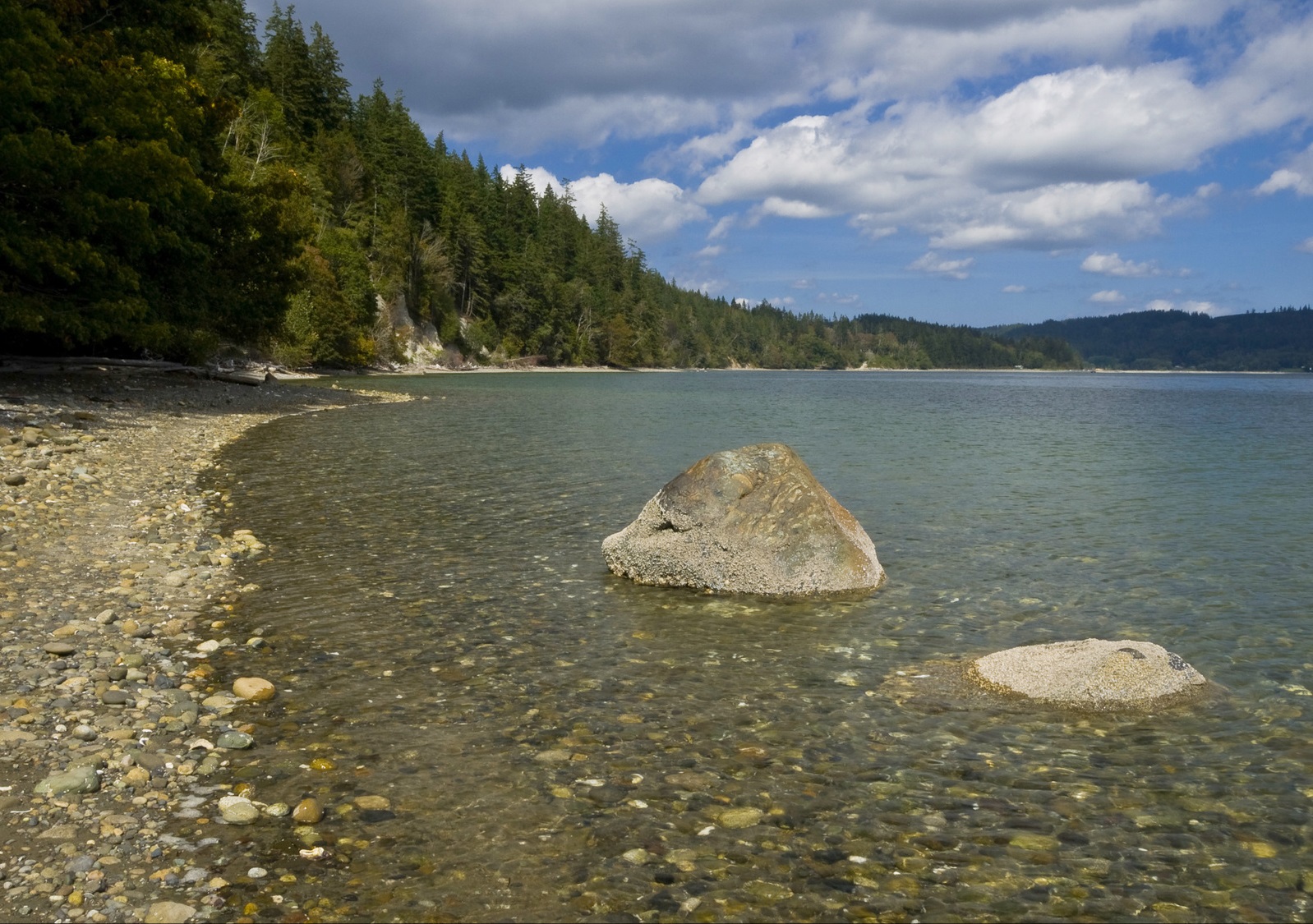Washington (US)
Overview
The State of Washington enacted legislation for marine spatial planning in March 2010 (RCW 43.372, amended in 2012). In this law, the Legislature directed the Governor’s Office to chair an interagency team to produce recommendations on how to implement marine spatial planning and establish a framework for the process. The law explicitly identifies renewable offshore energy and marine conservation as primary management objectives to be addressed. The State Ocean Caucus, an existing interagency coordination body that had previously developed Washington’s Ocean Action Plan (2006), played this role and put the framework in place early in 2011.
Like other MSP efforts in the United States, MSP is non-regulatory, but rather creates a framework for integrating existing authorities. The Department of Ecology leads an interagency team in coordinating the development of the plan, while the Washington Coastal Marine Advisory Council provides stakeholder input on the planning process.
The overarching goal of the plan is to ensure a resilient and healthy marine ecosystem on Washington’s coast that supports sustainable economic, recreational, and cultural opportunities for coastal communities, visitors and future generations. Sub-goals are:
- Protect and conserve existing sustainable uses to ensure economic vibrancy and resource access for coastal communities
- Maintain maritime coastal communities from now into perpetuity
- Ensure the preservation of the marine ecosystem for future generations
- Develop an integrated decision-making process, which supports proactive, adaptive and efficient spatial planning
- Encourage economic development that recognizes the aspirations of local communities and protects coastal resources
Key principles of the planning process are:
- Recognition and respect for existing uses and tribal treaty rights
- Promotion of protection and restoration of ecosystem processes to a level that will enable long-term sustainable production of ecosystem goods and services
- Addressing potential impacts of climate change sea level rise upon current and projected marine water uses and shoreline and coastal impacts
- Fostering and encouraging sustainable uses that provide economic opportunity without significant adverse environmental impact
- Preservation and enhancement of public access
- Protection and encouragement for working water fronts and support for the infrastructure necessary to sustain marine industry, commercial shipping, shellfish aquaculture, and other water-dependent uses
- Fostering public participation in decision making and significant involvement of communities adjacent to the state’s marine waters
- Integration of existing management plans and authorities and developing recommendations for aligning plans to the extent practicable.
Overall outcomes of the plan will be:
- Guidance for new ocean uses along Washington’s Pacific coast, such as renewable energy projects and offshore aquaculture
- Baseline data on coastal uses and resources to capture current conditions and future trends
- Requirements and recommendations for evaluating new ocean uses through the different phases of project review consistent with existing laws and regulations
- Recommendations to protect important and sensitive ecological areas and existing uses like fishing
As part of the MSP projects, several projects have been conducted to develop more thorough data on existing uses. These projects can be found at msp.wa.gov and include:
- A recreational use survey
- A coastwide economic analysis of coastal communities including activities such as fishing and aquaculture
- Compiling existing information and data and providing access to this information and associated maps via an online data viewer
TNC’s Role
- Science/technical expertise
- Policy expertise
- Stakeholder engagement
- Advisory
- Financial
TNC obtained funding to provide training and input sessions on the tool, as well as for five stakeholder engagement workshops, co-hosted by the Surfrider Foundation, to gather input and feedback from coastal residents and stakeholders on their interests and concerns to inform plan goals.
TNC staff also acted as a public advocate for the planning process by testifying at the House hearing, providing public comments, and by educating stakeholders on the purpose and merits of CMSP.
Project Partners
Lead Institution: Washington Department of Ecology
Other Partners: WDFW, ECY, WDNR
Status
The final plan has been drafted and public comment is complete; however, publication of the plan is pending.
Fact Sheets and Links
- Washington Marine Spatial Planning Home
- Washington Coast Marine Spatial Planning FAQs
- Mapping Application
Contact
Garrett Dalan
Washington Coast Community Relations Manager
Email: garrett.dalan@tnc.org
Photo credit: © Keith Lazelle

